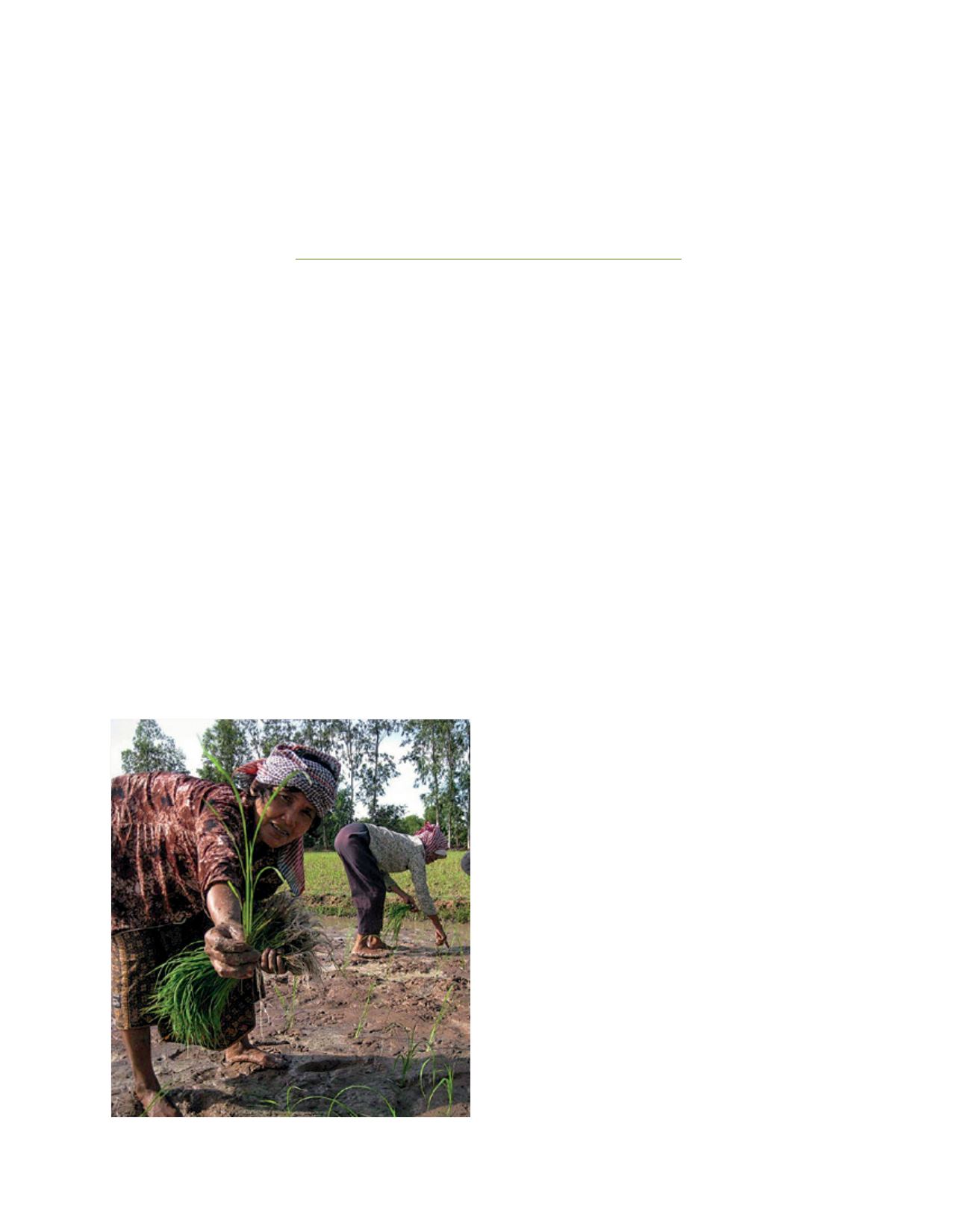

[
] 174
International Year of Family Farming
national committees: fruitful assets
to boost family farming
Joseba Imaz, Communications Coordinator, World Rural Forum
D
eep
R
oots
T
he activity of International Year of Family
Farming national committees has had a positive
impact on public opinion and public policies
related to family farming.
The dream came true on 21 December 2011, when the
United Nations General Assembly unanimously declared
2014 as the International Year of Family Farming. Behind
that declaration were several years of intense campaigning,
coordinated by the World Rural Forum and backed by more
than 360 organizations: rural federations, non-governmen-
tal organizations (NGOs) and research centres, among
others. It was a common goal joined by the Government of
the Philippines – which presented a draft resolution for the
declaration before the United Nations – and co-sponsored
by 40 countries including Argentina, Brazil, Sierra Leone,
Cuba, Spain, Colombia, Togo, Niger, Tanzania, Australia,
Guinea, Thailand, India and Switzerland. The unanimous
approval of the declaration by the United Nations General
Assembly was great news and a well-deserved recognition
of the silent work of so many men and women – family
farmers, peasants, indigenous communities, artisan fishers
and pastoralists – whose work and potential have been so
often forgotten and underrated.
The International Year of Family Farming began with
that declaration, but everything remained to be done. Since
then, civil society has continued working on its organiza-
tion, trying to add new wills in favour of the rights of those
engaged in family farming. Likewise, many governments
and international agencies joined the preparations for the
International Year of Family Farming, in dialogue with
rural organizations. Fruitful dialogue between civil society,
governments and international agencies has been gener-
ated across the world in order to push the main goal of this
international year: to attain public policies that support the
activities of family farmers.
Within the framework of civil society’s global International
Year of Family Farming preparation programme, the crea-
tion of national committees was promoted by the World
Rural Forum with the support and participation of other
rural and social sectors, public institutions and international
organizations. These national committees would be led by
organizations of men and women farmers, fishers, pastoral-
ists and indigenous communities.
The national committees have incorporated as many
farmers’ organizations and other representatives of civil
society as possible. Together with government representatives
and international organizations, these civil society representa-
tives make up the three pillars required for the creation of
an official national committee, or at least an official dialogue
on the improvement of agricultural policies. The result of
the activities developed by the International Year of Family
Farming national committees can be summarized in two
words: extremely positive!
This overall result is the fruit of remarkable efforts by civil
society which has admirably organized itself in order to advo-
cate for the rights of a sometimes significant proportion of their
nations’ population: family farmers. Civil society organizations
have not stopped at calling upon governments, but have often
invited them to actively join this movement by taking part in
Asian women family farmers planting rice
Image: FNN/AFA
















